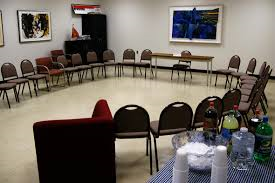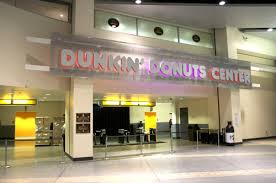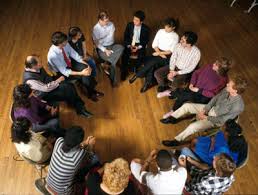Yesterday I spoke to a group of about 25 women at my church (Unitarian Universalist Fellowship of San Luis Obispo County). Other than in NA and AA meetings it was the first time I had ever spoken in public. I chose to speak about addiction. What follows is the text of my talk.
I’m Hanje; I’m an alcoholic and a drug addict. I realize this is not an Alcoholics Anonymous meeting or a Narcotics Anonymous meeting, but I do appreciate this opportunity to speak with you about addiction. As a teenager and young adult I used and abused a variety of substances including alcohol and street drugs, but I have been clean and sober since May 6, 1981.
Before I continue, I want to make clear that everything I say today is my own opinion. I am not here as a representative of any group, nor am I suggesting any particular type of treatment or recovery program. I have come to these ideas on my own, through personal experience and research. Please accept my remarks for what they are: part of my personal story supported by some background information about addiction.
I have been clean and sober for 31 years. I drank and used drugs from the time I was 15 or 16 until I was 27. And then I was lucky. My sister and my mother gathered a dozen or so of my friends and other important people in my life together and with help from the Johnson Institute prepared for and did an intervention. As you may know, an intervention is an orchestrated attempt by family and friends to get someone to seek profession help with an addiction or some kind of traumatic event or crisis.
I am passionate about this topic because I am alive.. Because I am a survivor. Because I am in recovery. I want to shine the light on the subject of addiction, to help remove the stigma that surrounds it. I have “come out” as an addict and alcoholic in the hope of being an example to others who are living as practicing or recovering addicts and alcoholics. I respect the choice many people make to remain anonymous in recovery, but I have chosen not to be anonymous, which allows me to share my experience, strength and hope with people like you who may know someone who has been affected by the disease of addiction. And, I think it is safe to say that almost everyone knows someone who has been affected by the disease of addiction in one way or another.
I have recently been asked to join both the national and local Unitarian Universalist Addictions Ministry Teams. The Unitarian Universalist Addictions Ministry helps to educate and facilitate conversation in congregations on issues surrounding alcoholism and addiction. The mission of the Addictions Ministry is:
The Unitarian Universalist Addictions Ministry is called to walk together with congregations and religious professionals to educate individuals, families, congregations and communities about the suffering caused by addiction.
Our purpose in doing this ministry is to transform cultures of misuse and abuse into cultures of healing, wholeness, and health.
The Addictions Ministry has done workshops at both PSWD District Assembly and General Assembly, it has offered recovery meetings during General Assembly, has had a booth with information at both District Assembly and General Assembly. This year we will have an ad in the General Assembly Program, have a booth at General Assembly and again will offer the opportunity for people to attend a recovery meeting every day during General Assembly.
The definition of addiction has changed significantly as science and understanding has changed over time. A current definition from the National Institute on Drug Abuse pamphlet The Science of Drug Abuse and Addiction says:
“Addiction is defined as a chronic, relapsing brain disease that is characterized by compulsive drug seeking and use, despite harmful consequences. It is considered a brain disease because drugs change the brain – they change its structure and how it works. These brain changes can be long lasting, and can lead to the harmful behaviors seen in people who abuse drugs.”
The pamphlet continues:
“Throughout much of the last century, scientists studying drug abuse labored in the shadows of powerful myths and misconceptions about the nature of addiction. When science began to study addictive behavior in the 1930s, people addicted to drugs were thought to be morally flawed and lacking in willpower. Those views shaped society’s responses to drug abuse, treating it as a moral failing rather than a health problem, which led to an emphasis on punitive rather than preventative and therapeutic actions. Groundbreaking discoveries about the brain have revolutionized our understanding of drug addiction, enabling us to respond effectively to the problem.”
It was in this atmosphere of shame and guilt that Bill W. and Dr. Bob started the fellowship of Alcoholics Anonymous in the 1930s, which was partly based on the idea that alcoholism was an illness, not a moral failing. Originally, anonymity was practiced as a result of the experimental nature of the fellowship and to protect members from the stigma of being seen as alcoholic.
Many other 12 step groups are modeled after Alcoholics Anonymous. Over 200 self-help organizations–often known as fellowships—with a worldwide membership of millions—now employ twelve-step principles for recovery. Narcotics Anonymous, for example, was formed in 1953 by addicts who did not relate to the specifics of alcohol dependency but believed in the tenants of the 12 step model.
There is a newer (1992), less well known recovery support group that is not based on the twelve step model called SMART Recovery. SMART stands for Self Management and Recovery Training. The SMART Recovery 4-Point Program® helps people recover from all types of addiction and addictive behaviors, including: drug abuse, drug addiction, substance abuse, alcohol abuse, gambling addiction, cocaine addiction, prescription drug abuse, and problem addiction to other substances and activities.
I need to add that Narconon is not to be confused with Narcotics Anonymous or Nar-Anon. Narconon is a Scientology front group. It offers purported drug rehabilitation treatment and anti-drug lectures which promote the ideology of L. Ron Hubbard; neither is considered valid by mainstream science or medicine.
I started smoking cigarettes in January of 1969. I loved my first cigarette. I could not wait until I could have my second cigarette. I smoked my last cigarette in March 2007. I smoked cigarettes for 38 years. It was the first thing I became addicted to and it was the last thing I gave up.
Over the next couple of years I started drinking alcohol and smoking marijuana when the opportunity arose. As time went on, drinking became more frequent until my use was daily. I had blackouts from very early in my drinking career. I tried other drugs including hallucinogens, amphetamines and opiates. I drank and used with my friends in high school and beyond. There were five of us who drank and drugged together in high school. Three of them did not become addicts and apparently outgrew the experimental phase, one of them died two years ago from an intravenous drug overdose, and then there is me. Was there a way to know which of us were going to become addicts? There might have been a way to tell through brain scans, but I don’t think that any of us would have been able to predict, and I don’t think it was necessarily obvious to an outside observer either.
From the outside my life appeared normal. In 1981 before I went to treatment I was working at 2 part time jobs. I was paying my bills. I had my own apartment. I was a book reader. I was a responsible employee. I dressed appropriately.
Upon closer inspection, people would have discovered that I was buying my alcohol and cigarettes from different stores each day because I was ashamed. On election night in November 1980 I passed out drunk, with a lit cigarette and suffered first, second and third degree burns on my hand and abdomen, resulting in the fire department coming to my apartment and many trips to University Hospital for burn treatment. I would isolate and would not answer my phone or my door. I stole rolls of toilet paper from bars. I told my boss that I was thinking about seeing a therapist because I was just so unhappy with my life.
I became less and less careful about keeping the parts of my life I was ashamed of away from people that really mattered, and my secrets were being discovered by more and more of my friends and family.
In May of 1981 there was an intervention planned and executed by members of my family, my closest friends and my boss. Each person read a statement to me which reflected back to me some of the behaviors that I was trying so hard to keep hidden. After reading their statements to me, I was asked by each of them if I would agree to get help. My body was trapped in a room with these people, but my mind was racing. How can I say yes, make them all happy, and then continue with my life?
They were prepared for me and my slippery plans. They already had a suitcase packed and a reservation at a residential treatment center. They had been told not to let me go home or anywhere else, but to drive me directly to the treatment center. They delivered me and my suitcase to my home for the next 29 days, Twin Town Treatment Center in St. Paul, Minnesota.
The next 29 days were amazing and hard and stressful and revealing and huge relief. I learned so much about addiction, about myself, and I started to learn tools for living a clean and sober life. We attended private therapy, group therapy, in-house AA meetings, outside AA meetings. We had three meals served to us every day. We had regular physical exercise. We got to work on ourselves for an entire month with paid staff and peers to help us.
There was a reason I was so miserable. There was a name for what was wrong with me. There wasn’t a cure but there was recovery. There were people who spoke to us and that worked in the treatment center that had impressive clean time. And nearly every day someone graduated from our program, showing that it was possible to make it.
After my 29 days in treatment I attended a 90 day halfway house program. During this program in addition to meetings and therapy and working on goals and socialization skills we also worked at paying jobs outside the halfway house. As much as the initial treatment had been a relief and a respite, the whole idea of doing 3 more months in an institution did not appeal to me at all. In retrospect, that additional time at Progress Valley (yes it was really called Progress Valley) may have given me the time, the clarity and the additional life skills to stay sober for the rest of my life up until now.
Early in recovery I attended 4 AA meetings a week. I did that for several years, and then I started going less and less often until I had stopped attending meetings altogether. About 6 years ago I was in a very deep depression. I went to a therapist and started telling her about my depression. I had been talking to the therapist for no more than 10 minutes when she asked me when the last time I attended an AA meeting was. It had been a very long time. The therapist asked if I would be willing to try meetings again. I said I would do anything that might help with this depression.
I started attending AA meetings in my small town in Arizona. At the meetings I attended I met young women who talked about “The House” or the “Renaissance House” and I grew curious about this “House.” Eventually I got a job at the Renaissance House which was a small treatment facility for homeless women and their children. I worked at the Renaissance House as a behavioral health tech for over 2 years.
One day one of the women who was a resident in the house and another staff person were talking about the fact that we no longer had a Narcotics Anonymous meeting in our small town, and that the women in the house had to go to 4 or 5 AA meetings a week, but most of them did not identify as alcoholics (not unlike the people who originally started NA using the AA model back in 1953.) We did some research and the three of us who had never attended one NA meeting between us started an NA group. When I left Bisbee 5 years later, the group was still going strong.
For years I picked up the Renaissance House residents to attend the Tuesday Night NA meeting both as an employee and later as a volunteer. I was the treasurer of the NA group for 5 years and I ran the meetings about half the time.
When I arrived in San Luis Obispo I started attending an AA meeting once a week and an NA meeting once a week. I was just elected treasurer of the AA meeting I attend, and I am currently in the process of a background check so I can go to the women’s jail and carry the Narcotics Anonymous message to the women in the jail.
My life is not just about service and participation in twelve step groups though. I joined SLO NightWriters after attending the Central Coast Writers Conference last fall. I am working on writing a memoir. I attend a weekly writer’s workshop. I have a blog where I post personal essays on a variety of subjects including addiction. I love to read. I watch lots of TV and movies. I love to go to the beach. I love to travel. I enjoy photography and social media. I am trying to become a better cook of low carb food and I reluctantly but persistently walk for miles each week while listening to audiobooks and podcasts. In the next several months I will be attending two Writers Conferences, the Unitarian Universalist Regional Assembly and the Unitarian Universalist General Assembly.
I am Hanje, an alcoholic and an addict. I believe that addiction is a disease. I believe that recovery is possible, only through abstinence. I believe that without recovery, addicts ultimately end up in jails, intuitions or dead. I believe that for me, when it comes to mood altering substances, one is too many and a thousand is never enough.
Finally, I believe that addiction need not be a life sentence. Like other chronic diseases, addiction can be managed successfully. Treatment enables people to counteract addiction’s powerful disruptive effects on brain and behavior and regain control of their lives.







